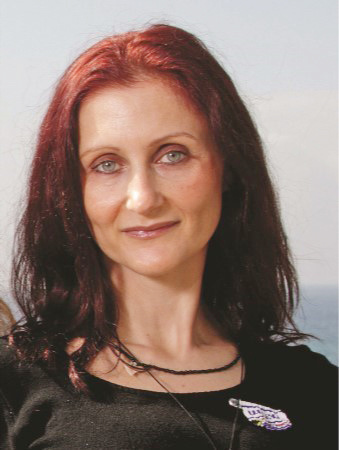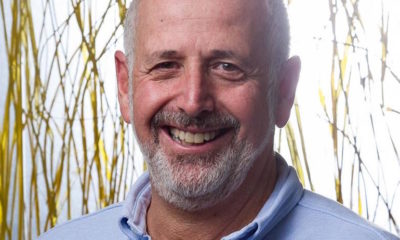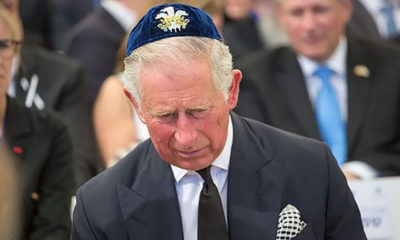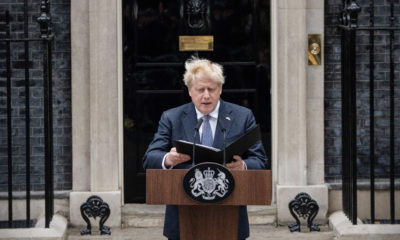
OpEds

The greatest Briton
Published
2 years agoon
By
Rolene Marks“I declare before you all that my whole life, whether it be long or short, shall be devoted to your service and the service of our great Imperial family, to which we all belong.” – Princess Elizabeth, South Africa, 1947
Though the Imperial family evolved into a Commonwealth of Nations as the British Empire devolved, the 21-year-old princess, who became Britain’s longest reigning monarch, Queen Elizabeth, truly dedicated her life to her people. That commitment, as her grandson, the Prince of Wales, said in his emotional tribute, was absolute.
The late Queen, who celebrated her platinum jubilee just several months ago, was universally loved and respected, not just because she could jump out a helicopter with James Bond or take tea with Paddington Bear. She was dedicated to service and duty, and was a constant reassuring presence in our lives when the world became ever more turbulent.
At the height of the pandemic, when the monarch invoked the blitz spirit of her youth and the words of Vera Lynn to say, “We will meet again,” we believed her. Because we did meet again. There she was, that steady, guiding hand that not just her people, realms, and Commonwealth looked to, but the world.
Her trusty hairstyle never changed, neither did her beaming smile or twinkling eyes, and for many, that continuity provided strength and succour.
World leaders, often filled with their own sense of self-importance, jostled each other out of the way and their knees shook when meeting a tiny, old lady whose wisdom they sought and whose leadership they greatly admired, but could never emulate.
The Queen wasn’t just sovereign to the United Kingdom, realms and territories, or head of the Commonwealth, which she held so dear, but Queen, essentially, of the world. Such was the love and admiration she inspired.
What was Her Majesty’s relationship to Jews and Israel?
Many have criticised the Queen for never visiting Israel. What they don’t realise is that foreign trips are made at the request of the British Foreign Office, wanting to deploy the soft diplomacy and convening power that royalty has.
The respected historian, Andrew Roberts, once said that the British government had a de facto ban in place on state visits by Queen Elizabeth II to Israel. “The true reason of course, is that the FO [Foreign Office] has a ban on official royal visits to Israel, which is even more powerful for its being unwritten and unacknowledged. As an act of delegitimisation of Israel, this effective boycott is quite as serious as other similar acts, such as the academic boycott, and is the direct fault of the FO Arabists. It’s therefore no coincidence that although the Queen has made more than 250 official overseas visits to 129 different countries during her reign, neither has ever been to Israel on an official visit,” said Roberts, addressing attendees at a gala dinner in London.
The Queen received many Israeli dignitaries including former President Shimon Peres, who was awarded an honorary knighthood in 2008. Peres was knighted with the Grand Cross of the Order of St Michael and St George.
For 30 minutes, Peres spoke to the Queen about Israel’s history and situation, and gave the Queen two gifts: a letter written by her father, George VI, upon the official recognition by Britain of the state of Israel, and two silver candlesticks in the shape of pomegranates.
The former president described their meeting as, “friendly and informal”.
“The Queen asked me a lot of questions about Israel. I was moved to be the representative who received this honour for the state of Israel. The whole ceremony was not for me as an individual but a mark of respect for the country. I felt I was a shaliach mitzvah (emissary dispatched to do a mitzvah).”
Israel’s current president, Isaac Herzog, who will represent Israel at her state funeral, stated when news of her death broke, “Her Majesty Queen Elizabeth II was known far and wide simply as ‘The Queen’. Her passing is the end of an era. Together with the Israeli people, I grieve her loss and extend my deepest sympathies to the British people and all nations of the Commonwealth, who have lost their matriarch. Queen Elizabeth was a historic figure: she lived history, she made history, and with her passing, she leaves a magnificent, inspirational legacy.
“My late mother and father had several audiences with the Queen over the years. Her fond welcome and warm hospitality left a profound impression down the generations.”
The Queen had strong ties with the Jewish community (even hiring a Jewish mohel to perform a royal circumcision), and met Holocaust survivors on many occasions.
One such meeting was at an event marking 60 years of liberation of Bergen-Belsen. The late Rabbi Lord Jonathan Sacks who was present, later recounted, “When the time came for her to leave, she stayed. And stayed. One of her attendants said that he had never known her to linger so long after her scheduled departure. She gave each survivor – it was a large group – her focused, unhurried attention. She stood with each until they had finished telling their personal story.”
Often referred to as the “mensch who will be king”, then Prince Charles has had an enduring and close relationship with British Jewry. He’s patron of World Jewish Relief as well as the Holocaust Memorial Trust, a patronage that once belonged to the Queen. He’s also patron of the Jewish Museum, JLGB for Jewish youth across Great Britain, and numerous others. To coincide with International Holocaust Memorial Day, the then Prince commissioned portraits to be painted of several Holocaust survivors accompanied by a documentary on the BBC. He gave a very moving speech on the 75th anniversary of the liberation of Auschwitz hosted by Yad Vashem, and met survivors privately, away from the prying eyes of the media. He also gave a notable private donation to The Peres Centre for Peace. His wife, then the Duchess of Cornwall, Camilla, visited Auschwitz, representing the Queen to mark the 75th anniversary of the liberation of Auschwitz.
As he bears the enormous responsibility of monarch, I cannot help think that it’s the wise counsel of his great friend, the late Rabbi Sacks, that he will sorely miss.
As the world prepares to bid farewell to the greatest of the greatest generation, there are calls in the media to assign her the moniker, Elizabeth the Great. It’s most fitting, for she was, indeed, the greatest Briton.
- Rolene Marks is the SA Jewish Report’s royal correspondent based in the Middle East.











Barney Marks
Sep 16, 2022 at 5:56 pm
I would never have imagined sun an apologist view of the queen and the whole royal family actually making its way to print. No one in their right mind could refer to the philandering Charles as a Mencsh on a bench. He’s a shmuck married to a sheik The queen knew this and that is why she refused to abdicate in favor of her idiot son. She was no Angel either. Your excuse for why she never visited Israel, where her own mother in law is buried, is beyond pathetic, blaming it on some arabist in the FO. You are acknowledging that she has no authority or power. That makes her a puppet on a string. So WooHoo for living your life as a puppet. The whole royal family are a bunch of inbreds, cousins marrying cousins giving birth to degenerates.
The royal family should be wound down and stripped of their roles and riches Let them live as commoners, and have them return their stolen wealth to the people and countries they raped and pillaged.